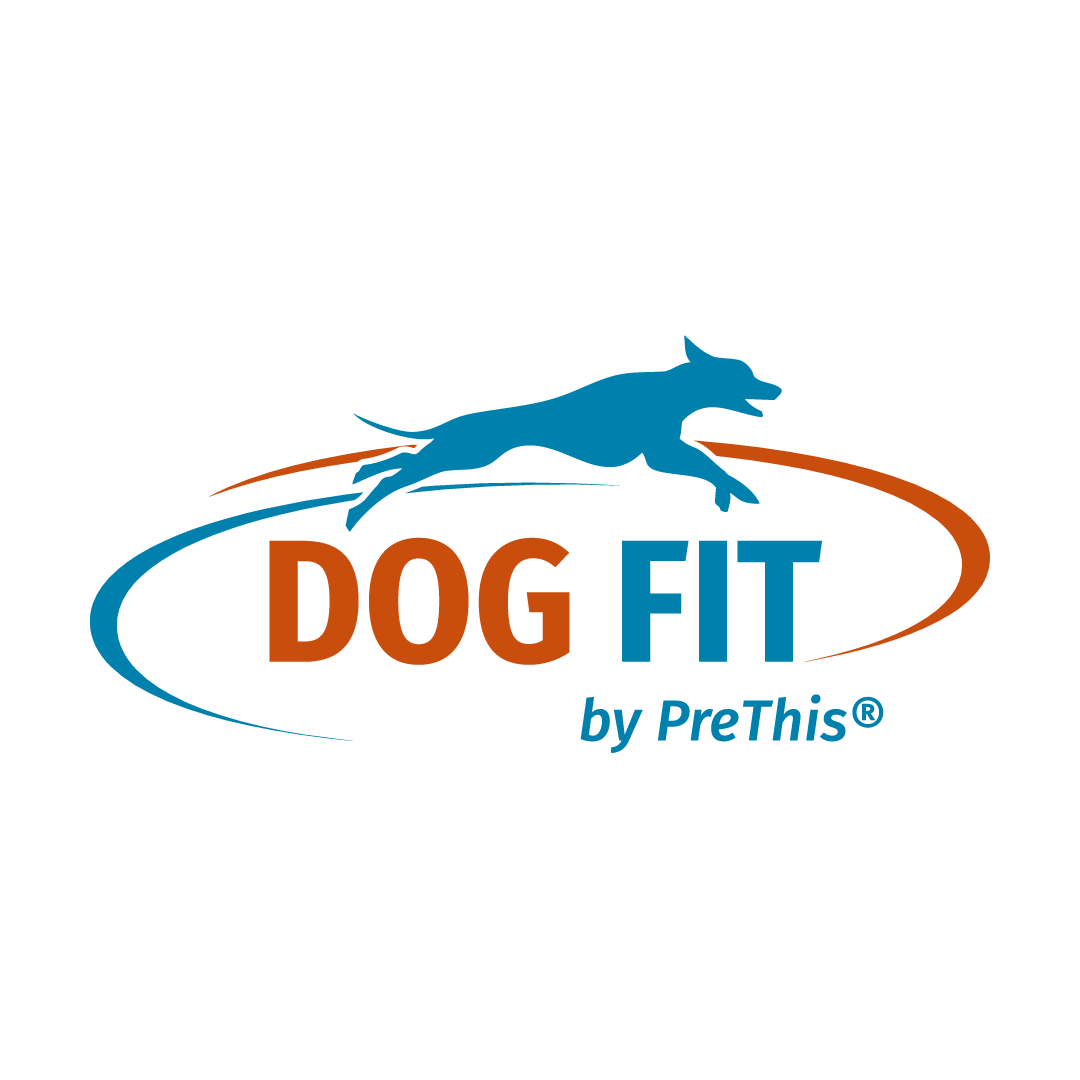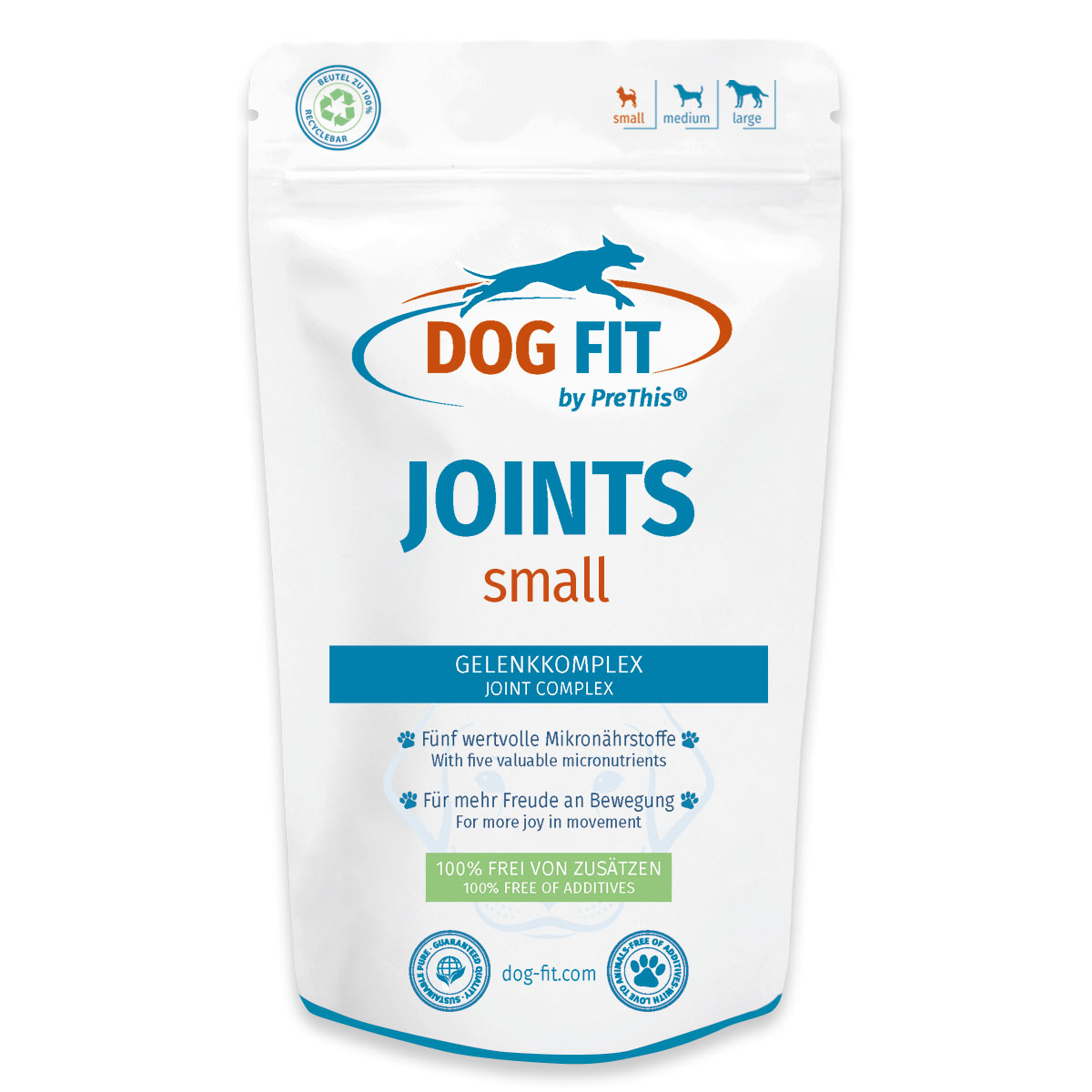Many dog owners are familiar with this: Their dog suddenly appears stiff when standing up, avoids stairs, or no longer jumps into the car like they used to. Abnormal gait, reduced mobility, or a change in posture can be signs that the joints need support. It’s worth paying attention to such signs, especially in older dogs, but also in young, athletically trained, or genetically predisposed dogs.
How does joint pain develop in dogs?
The causes of joint pain in dogs are varied. Often, the primary cause is gradual wear and tear of the articular cartilage. The cartilage acts like a natural shock absorber in the joint, ensuring that the bones meet gently. Over time—or due to excessive strain, misalignment, genetic factors, and an unbalanced diet—the cartilage can lose substance. This weakens its cushioning function, and movements become uncomfortable or even painful.
As cartilage degradation progresses, the joints are subjected to greater strain: friction, periosteal irritation, and sometimes even inflammation occur. If left untreated, these changes can lead to arthrosis, which permanently limits mobility. Diseases such as spondylosis, patella luxation, or hip dysplasia also play a role because they disrupt the balance of joint structures.
Other Factors for Joint Wear
Joint problems in dogs usually do not develop overnight. In addition to the natural aging process, obesity, insufficient exercise, or one-sided strain (e.g., due to sporting activities or overbreeding) are also risk factors. Another important consideration is feeding: Many commercially available (industrialized) foods do not contain all the nutrients the musculoskeletal system needs on a daily basis in the appropriate quality. This can impair the resilience of the cartilage tissue and surrounding structures in the long term.
The Role of Joint Nutrients
Certain micronutrients have proven effective in supplying joints. These include glucosamine, a natural building block of cartilage and synovial fluid. Glucosamine contributes to maintaining the normal function of cartilage and can play a role in the physiological balance of cartilage formation and breakdown.
Collagen is a key structural protein that provides strength and flexibility to cartilage, ligaments, tendons, and fascia. It is an important component of the joint system and contributes to the resilience of the joints.
MSM (methylsulfonylmethane) provides the body with sulfur – an element that is essential for the normal function of cartilage, tendons, and ligaments. MSM is traditionally valued in animal nutrition because of its nutritional and physiological support for the musculoskeletal system.
Other valuable plant substances such as devil’s claw or frankincense are often used in veterinary medicine as supplementary feed for specific mobility challenges.
How can you support your dog?
Your dog’s well-being begins with daily feeding: A high-quality, balanced diet and avoiding excess weight are essential for healthy joints. Regular, joint-friendly exercise such as walking or swimming strengthens the muscles and can promote mobility. If you’re unsure whether your dog is receiving optimal care, you can consult a professional – for example, a veterinarian, nutritionist, or animal health practitioner.
Dogs bring joy and movement into our lives—they challenge us to be active together and continually rediscover the world. With loving care, a needs-based diet, and small daily rituals, you create the best conditions for your dog to stay active and enjoy every day.
Product note: DOG FIT by PreThis® JOINTS 🛒 – Natural supplement for dogs with carefully balanced micronutrients. Non-GMO and free from artificial additives. Find more information in our Shop.

The content of the articles is for general information purposes only and does not replace diagnosis or treatment by a veterinarian. Reviews or testimonials are individual reports from verified customers. This information does not constitute medical advice and should not be understood as such.
Our daily inspiration comes from the special moments with our dogs. Here we share this enthusiasm and invite you to become part of the DOG FIT community on our social media channels.




Leave a Reply